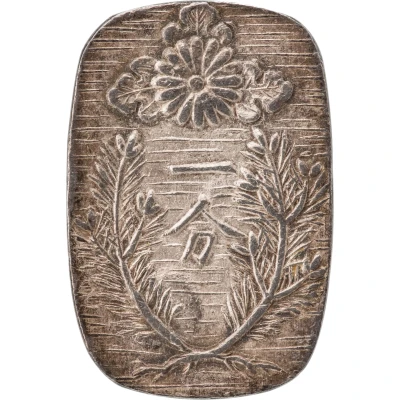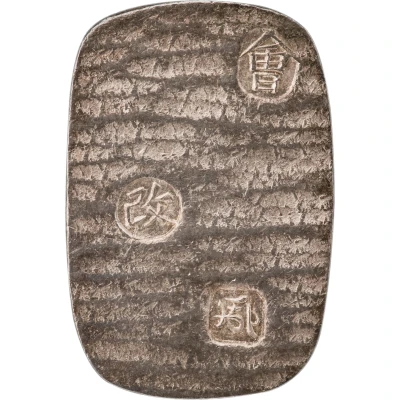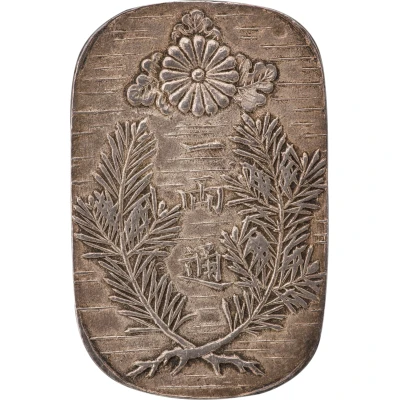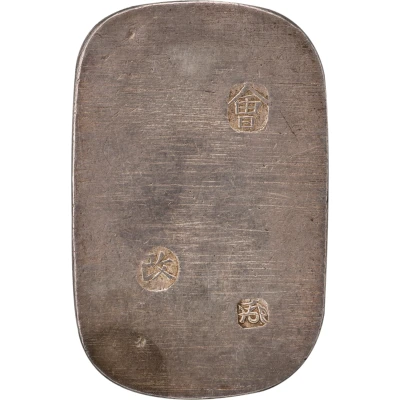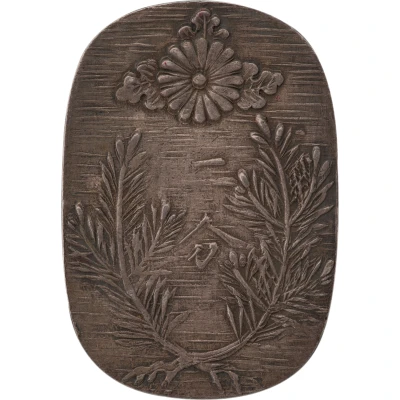
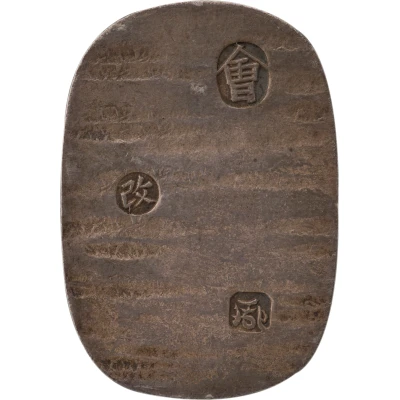

© Ginza Coin Auctions
2 Bu "Aizu Ginban" ND
1867 year| Silver | - | - |
| Issuer | Aizu Domain (Japanese feudal domains) |
|---|---|
| Type | Non-circulating coin |
| Year | 1867 |
| Value | 2 Bu = ½ Ryō |
| Currency | Ryō (1865-1868) |
| Composition | Silver |
| Shape | Oval |
| Demonetized | Yes |
| Updated | 2024-10-05 |
| Numista | N#287989 |
|---|---|
| Rarity index | 97% |
Reverse
A character stamp top-right, a character stamp center left, and signature bottom-right
Lettering:
會
改
Translation:
Ai
Revised
Comment
It is said that "Fukunishi" type is considered cointerfeit. Fukunishi had got only the obverse die, so he had make the reverse stamps dies."Fukunishi" type use narrow leaves obverse, and 改 stamp he made was マ as head of 改, and different signature stamp.
The defferences of signature stamp Fukunishi made and genuine stamp are:
- genuine stamp has dot on top of left line, ナ inside, and full loop on right line.
- Fukunishi stamp has nodot on top of left line, フ inside, and broken loop on right line.
Fukunishi did not make , so genuine stamp could be seen in 1 Bu Ginban pieces.
Interesting fact
One interesting fact about the Aizu Ginban coin is that it was minted during a time of great change and upheaval in Japan. The coin was produced in 1867, just a few years before the Meiji Restoration, which saw the end of the feudal system and the beginning of Japan's modernization. Despite being a non-circulating coin, it remains a valuable piece of Japanese history and a symbol of the country's transition from a feudal society to a modern nation.
